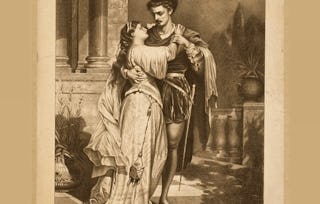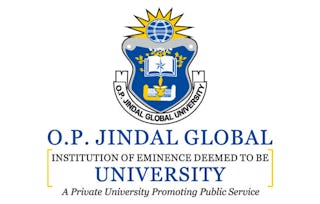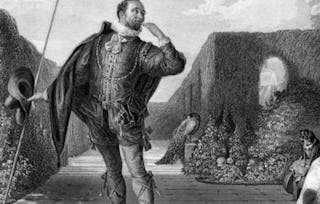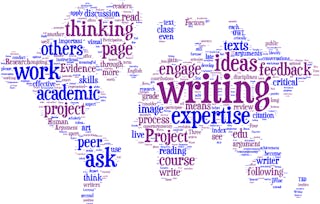This course from the University of London explores critical thinking, and the interpretation of texts, through the Shakespeare authorship question. Using doubt about Shakespeare’s authorship as our playground, we will explore the key concept of authorship attribution, while developing skills in literary analysis, interpretation, and argument. Through forensic exploration of key texts, you will learn why Shakespeare’s authorship is questioned, and what evidence is cited on both sides of the debate.


Introduction to Who Wrote Shakespeare


261 reviews
Details to know

Add to your LinkedIn profile
17 assignments
See how employees at top companies are mastering in-demand skills

There are 4 modules in this course
This week is a practical introduction to the Shakespeare authorship question, covering terms and concepts you will use and outlining the basic arguments for and against William Shakespeare’s authorship of the works attributed to him. You will learn a framework for understanding how a person’s perceptions (including your own) are shaped by pre-existing beliefs and assumptions and learn how this might impact your ability to interpret and assess literary and historical evidence. You will then be introduced to a key theory of the authorship question and to the first practical exercise in close-reading a relevant text.
What's included
20 videos4 readings5 assignments1 discussion prompt
In this module we’ll look at questions of identity; chiefly at arguments that attempt to link William Shakspere the man to William Shakespeare the author – or to sever that link. The arguments surrounding “Hand D” in Sir Thomas More claim to establish a firm link between Shakspere and Shakespeare, and Shakespeare’s authorship of the “Hand D” pages is now being presented as fact, so it’s important to understand the evidence, arguments, and reasons for this attribution. You’ll look in detail at the non-Stratfordian argument that Shakespeare authorship doubt was first expressed within only four years after the first “Shakespeare” publication in the works of John Marston and Joseph Hall. You’ll consider some of the key Stratfordian and non-Stratfordian arguments related to William Shakspere’s coat of arms. And lastly, you’ll look critically at an important cornerstone of Shakespeare biography, Robert Greene’s reference to a plagiarising actor, the “upstart Crow”.
What's included
22 videos2 readings4 assignments1 discussion prompt
In the module, you will look more deeply at the connection between Stratford-upon-Avon and Shakespeare, beginning with Shakespeare-related testimony from people who had a provable personal connection to Stratford-upon-Avon and Shakespeare: William Camden, Michael Drayton, Shakespeare's son-in-law, Dr John Hall, and Shakespeare’s daughters. You’ll consider the question of his daughters’ literacy, and whether has any bearing on the authorship question. You’ll look at what are claimed to be local Warwickshire references in the plays, which have been used to support the traditional authorship attribution. And finally, you’ll consider the monument erected to Shakespeare in Stratford’s Holy Trinity Church, arguments that it was altered in the 18th century, and the three texts engraved on that monument and the connected grave.
What's included
22 videos2 readings4 assignments1 discussion prompt
In this final module you’ll explore the key text supporting the traditional attribution of Shakespeare’s works: the 1623 First Folio of Shakespeare’s works. You will learn why the First Folio is a critically important text for those interested in the Shakespeare authorship question, and you will study in detail – applying the textual analysis skills you have developed so far - the texts included in its preface..
What's included
19 videos1 reading4 assignments2 discussion prompts
Instructor

Explore more from History
 Status: Preview
Status: PreviewUniversity of Colorado Boulder
 Status: Preview
Status: PreviewO.P. Jindal Global University
 Status: Preview
Status: PreviewUniversity of Colorado Boulder
 Status: Preview
Status: PreviewDuke University
Why people choose Coursera for their career

Felipe M.

Jennifer J.

Larry W.

Chaitanya A.
Learner reviews
- 5 stars
81.22%
- 4 stars
13.40%
- 3 stars
1.53%
- 2 stars
0.38%
- 1 star
3.44%
Showing 3 of 261
Reviewed on Jul 13, 2020
A Very Detailed Course on this existing question. The content was good, solid, and the quizzes were slightly tricky.
Reviewed on Apr 26, 2023
I was completely unaware of the controversy around Shakespeare and found this course fascinating. Recommended to anyone open to re-evaluating what you thought you knew about the playwright.
Reviewed on Nov 24, 2022
Fascinating course! wonderful professor who was like a private investigator, probing while encouraging us to think and be open minded

Open new doors with Coursera Plus
Unlimited access to 10,000+ world-class courses, hands-on projects, and job-ready certificate programs - all included in your subscription
Advance your career with an online degree
Earn a degree from world-class universities - 100% online
Join over 3,400 global companies that choose Coursera for Business
Upskill your employees to excel in the digital economy
Frequently asked questions
To access the course materials, assignments and to earn a Certificate, you will need to purchase the Certificate experience when you enroll in a course. You can try a Free Trial instead, or apply for Financial Aid. The course may offer 'Full Course, No Certificate' instead. This option lets you see all course materials, submit required assessments, and get a final grade. This also means that you will not be able to purchase a Certificate experience.
When you purchase a Certificate you get access to all course materials, including graded assignments. Upon completing the course, your electronic Certificate will be added to your Accomplishments page - from there, you can print your Certificate or add it to your LinkedIn profile.
Yes. In select learning programs, you can apply for financial aid or a scholarship if you can’t afford the enrollment fee. If fin aid or scholarship is available for your learning program selection, you’ll find a link to apply on the description page.
More questions
Financial aid available,



